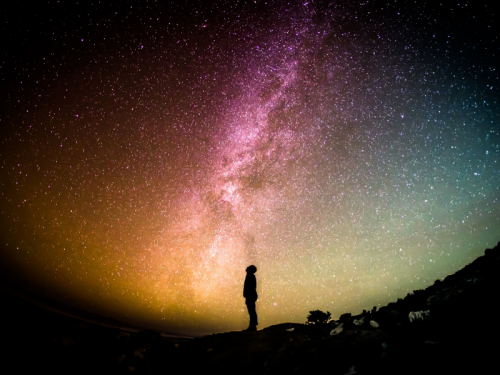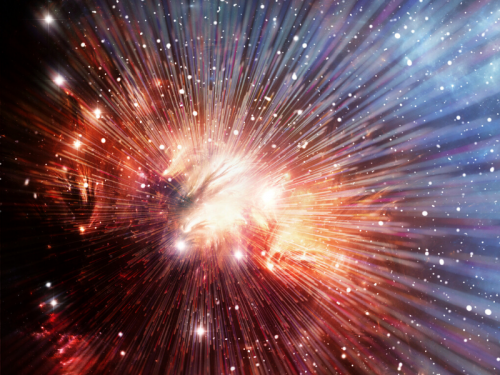In last week’s blog, I attempted to refute Stephen Hawking’s claim that God didn’t exist because there was no time in which God could have lived.
There was a time when I would have agreed with Stephen Hawking. I was an atheist in my younger years, but after several rather dramatic incidents, I became a believer in God and a follower of Jesus. You can watch my story.
I now believe that God created the Universe, and all it contains – time, space and matter. While God is eternal, and as such lives outside of time, God had a particular purpose in creating a finite world, but I’ll get to that a bit later.
A Finite World
“We don’t have the whole Universe to supply our needs. We live on this little round ball called the Earth, and it is finite,” writes Craig A. Severance at resilience.com. He goes on to say, “This little globe has been a really great kitchen cupboard to explore, but it seems we’ve just about opened all the drawers to all the pantries. Yet, more company keeps arriving and sitting down at the dinner table.” There will come a time when limited resources will run out in God’s finite world.
Stephen Hawking wrote, “But the present rate of growth cannot continue for the next millennium. By the year 2600 the world’s population would be standing shoulder to shoulder and the electricity consumption would make the Earth glow red hot. If you stacked the new books being published next to each other, at the present rate of production you would have to move at ninety miles an hour just to keep up with the end of the line.”
And beyond Earth, the Sun only has about 5 billion years of fuel left. While that might be comforting for us, it’ll be cold comfort (pun intended) to anyone still alive on planet Earth at that time. “When the sun expands into a red giant during the throes of death, it will vaporize the Earth.” (Ref: Livescience).
Finite Humans
God also made human beings finite. When the first humans disobeyed God, they were barred from the tree of life so they would not live forever (Genesis 3:22). From that time, people have died and been “gathered to their ancestors,” a Hebrew way of saying, “gone to the grave.” People are not eternal because God is “the only One who has immortality” (1 Tim 6:16). That’s why eternal life is a gift that God offers people through Jesus.
Lincoln Steffens once said, ‘I have seen the future and it works.’ He was actually talking about the Soviet Union, which we now know didn’t work very well. It’s the same with God’s creation. It was never intended to last forever. But why?
Purpose of it All
While God is eternal, and as such lives outside of time, God had a particular purpose in creating a finite world. The Bible teaches that God is a community, one God comprised of three distinct persons. Christians call this the Trinity. God is a community and made people in that same likeness to live and work together. God’s plan from the beginning was to create free will persons who would, out of their free will, love and adore him and whom he would love and adore forever. In other words, once time, space, and matter come to an end, eternity will begin again just as it was before God created this present order of things. God’s creation then is simply a divine interruption to eternity.
The apostle Paul stated it this way, “in order that in the coming ages [God] might show the incomparable riches of his grace, expressed in his kindness to us in Christ Jesus” (Ephesians 2:7). How wonderful to be the object of God’s attention and kindness in a world without end. Who can be the beneficiaries of this kindness? You, when you come and surrender your finite life to Jesus and receive the gift of eternal life.




